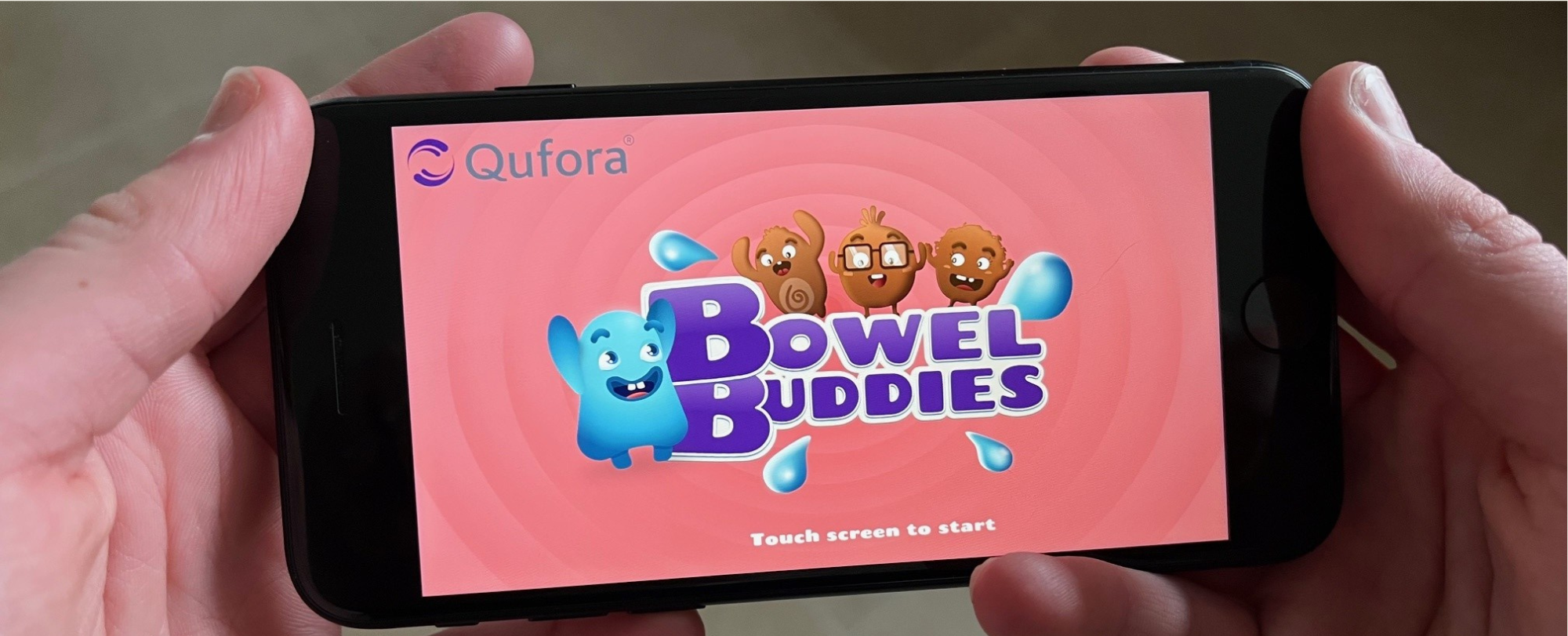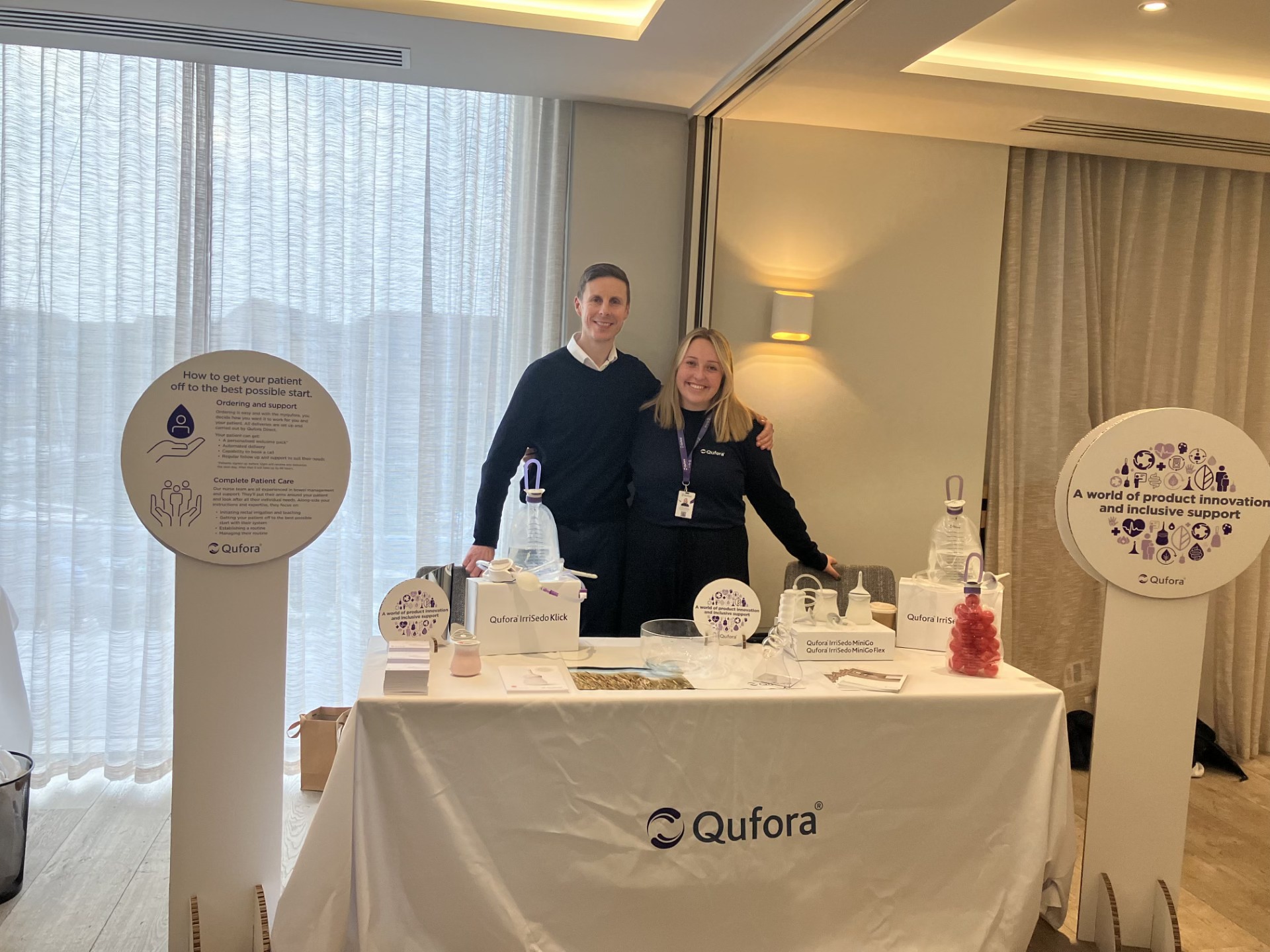In 2023 Qufora partnered with Andrea Jordan, Lead Clinical Nurse Specialist: Paediatric Surgery, and Georgina Malakounides, Consultant Paediatric Surgeon, Addenbrookes Hospital, Cambridge for a trial of the new MiniGo Flex Small cone. We caught up to hear how her thoughts on the experience and how she has used the new cone since its launch in June.
A Clinician’s Perspective
You had already seen an incredible success rate for your patients with the previous MiniGo Flex system, what made you feel confident to change some of them over to the MiniGo Flex Small system?
We had been approached by the Qufora team for our thoughts and input in regards to the product development of the MiniGoFlex small system for low volume transanal irrigation and we were keen for the cone to have eyelets similar to those that were already available on the Qufora Flow; reducing the size of the cone had not been a priority/consideration for us at that time. Some of our patients took part in the pilot of the new product and trialled its use and there was a high satisfaction rate with almost all preferring the MiniGoFlex small to the previous low volume irrigation product. The reasons for preference were varied and related to both the sense of improved effectiveness of irrigation due to the additional eyelets on the cone as well as a more comfortable irrigation secondary to the smaller size of cone. We were therefore keen to be able to offer the new upgraded model to more of the children we care for.
In your experience, how has the adoption of the small cone been for your patients?
Size/age of child has not been a factor in our decision to offer the small size cone; many of our teenage aged children are using the small size and getting benefits. Our one note of feedback is therefore a caution not to over use the narrative which suggests the smaller cone is for younger children – it is used by older children/teenagers on our caseload and I suspect, could be equally/or effective/comfortable for some adult patients. Just as we would not routinely use high volume irrigation until low volume has been tried, we are not routinely using regular sized cones until the small has been tried. Few children have needed to change to a regular size cone (those that have were experiencing leakage of water around the cone after its insertion) and age/size has not been a significant factor in this.
Looking back on the trial and now having the small cones available, is there anything that has surprised you about the process or experience?
It has been a pleasure to work with the Qufora team on the product development. The team are truly inspiring; they are approachable, professional and dedicated and their work makes a genuine difference to the lives of our patients. As clinicians we are grateful to be able to offer our patients a range of such high quality transanal irrigation products.







